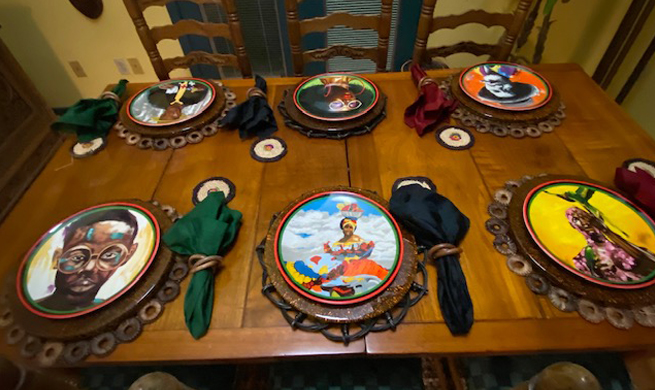Schedule Appointment
Schedule Appointment


If you’re like most people, a quick look in the refrigerator will reveal multiple containers of leftover food. For a variety of different reasons (economic, cultural and social), eating leftovers are a part of our culinary routine. However, leftovers aren’t just about food. Leftovers include the stories, the experiences and the memories that took place at the dining table. This valuable and insightful history is the power of the oral tradition. Unfortunately, like many of the leftovers in the refrigerator, this priceless history is quickly overlooked and often forgotten. A key reason for this is because the seats around the table are often empty and the stories and experiences aren’t being shared as they once were around the table.
Table Telling™ is a movement to bring American families collectively back to the dining table as one unit – sharing and passing on life lessons, discussing and exploring entrapments to avoid, familial history, nuances and expressions that’ll empower and intrigue younger generations.
We urge you to seriously consider bringing your family’s history back to your home via The Table Telling™ collection of fine porcelain dinnerware that feature beautiful artistic renderings that are certain to spark memories, conversation and storytelling from your history. Our first collection introduces settings and highlights that embody African American cultures. Future Table Telling™ collections will include representations from Jewish, Italian, Irish and Latino cultures. Take a look at our offerings and join us on the quest of making the dining table the “Heartbeat of the Home” once again!

Soul Food is the familiar name given to the culinary traditions of foods prepared in the African American traditions. Some people consider Southern Cooking to be synonymous with Soul Food; however, they are similar but slightly different. The Europeans who settled in what is now the American South brought with them livestock (cattle and pigs), potatoes, and other vegetables which have remained central to Southern Cooking. These settlers also brought to America African slaves to cultivate the land. While slavery will forever be a source of profound shame for the U.S., the slaves’ contributions to the American culinary traditions are something to elevate and celebrate!
Like many remnants of past decades, daily family meals today with every family member at the table is often rare. Chairs are empty! The dinner table environment has changed drastically. Today’s dinner table is often a gathering place for mail,
receipts, groceries and old newspapers. The physical dinner table exist but is no longer the hub of activity. Fast food, cell phones, the internet and odd work schedules for family often prevent enjoying a meal together. Much research has been conducted in recent years and confirms the empowerment of the family dinner table. Some of the benefits concluded from the research include: